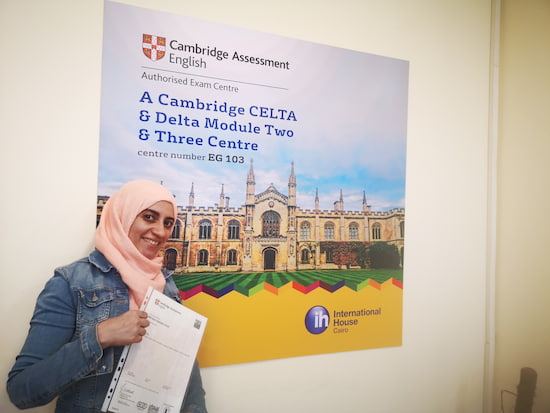العربية :يمكنك قراءة هذا المقال باللغة
Are you a non-native English speaker that has a passion for teaching? And would you like to pursue a career in teaching? If your answer is yes, then this article is for you!
The educational market is actively seeking professional dedicated teachers; also many English speakers (Natives and non-natives) around the world are looking for teaching opportunities as they keep arising every day!
Teaching is not an easy job but if you put your mind to it and dedicate time and effort it wouldn’t necessarily be a hard job either. And it can be a stable career due to the various flexible online and offline opportunities. Not only that but it’s also a well-paying job.
Schools in different parts of the world, especially countries with English as their second or maybe third language, are paying good money for non-native fluent language teachers.
- Fluency.
- Enthusiasm
- An excellent knowledge of your subject.
- A clear understanding of the curriculum.
- Teacher Certification.
- Experience in a variety of classrooms.
- A solid understanding of the most effective teaching techniques and approaches.
- Creating an interactive lesson plan.
- Technology.
- Have excellent classroom management skills.
- Willingness to lead extra curricular activity.
Fluency.
The number one qualifier and the game changer, you need to be very fluent to get your points across to your students and for your students and peers to understand you clearly. If your English is good, work harder for excellence!
This could be done through different learning channels; you can attend conversation workshops, listen, and read more, or even practice the language through ESL cafes and have conversations with native speakers.
Enthusiasm
Teachers with passion can create an outstanding learning environment inside and outside their classroom, meaning if you have experience without passion, it wouldn’t be enough!
Try to figure out whether you prefer communicating with and teaching adults or if it’s easier for you to teach younger age groups.
An excellent knowledge of your subject.
Dig deeper into the language.
You can have a full knowledge about the language you want to teach if you make the effort to.
“Language Components” are an art, each component is an art on its own that you can learn and later on teach.
A clear understanding of the curriculum.
If you are a new teacher and don’t know what a curriculum is, We’re here to help!
It basically has a broad definition but it simply represents the educational process with a planned sequence.
Build a clear understanding of the curriculum you are delivering.
Schools work with different curriculums and each curriculum has its scope and sequence.
If you are new to the curriculum you’re about to teach, ask questions and be proactive about everything you need more insight on.
Teacher Certification.
One of the essential requirements in international schools is being a holder of a teaching certificate such as, TESOL, TEFL, CELTA, or DELTA.
TESOL and TEFL are provided by different course providers but they don’t have a specific accreditation body, unlike the Cambridge accredited certificates CELTA and DELTA, which are recognized and approved by schools and universities worldwide.
As a fresh or experienced teacher, having a certificate is a necessity as you’ll get to explore the technical part as a teacher and grab a good hold of all the necessary teaching skills.
Consequently, your chances in the educational market will increase!

Become an Accredited English Teacher with the CELTA.
Take the CELTA course with us. The CELTA is highly regarded by employers around the world as it is the most highly respected of its kind in the world.
Experience in a variety of classrooms.
To teach in an international school you’ll have to deal with a wide range of students with different learning needs, so be well-equipped before applying!
Some teachers rely on their previous teaching experience, but if you don’t have enough experience go for a course as an alternative.
For example, in the CELTA course, you will benefit from CELTA TP (Teaching Practice), an integral part of the course, which is taken in small groups of 5-6 trainees with volunteer students.
A solid understanding of the most effective teaching techniques and approaches.
Students nowadays are not only recipients, but they are also a part of an interactive classroom.
Being familiar with the most effective teaching techniques and teaching approaches is a key requirement in any international school.
A combination of your teaching techniques and approaches is called a “Teaching philosophy”.
You might be asked to submit a written teaching philosophy before joining an international school, or orally explain your teaching philosophy during your interview. Start preparing your philosophy now!
Creating an interactive lesson plan.
Before joining an international school, you will be asked to submit a lesson plan (or in other words a road map) and demonstrate a live lesson during your interview.
Creating an effective lesson plan is quite challenging.
To prepare yourself for this step, make sure you attend the teacher training courses where you can learn how to create an effective lesson plan.
Technology.
Learning how to use technology during lessons is essential, so you need to start looking for ways to stay up to date by using technology during your classes.
Most international schools are fully equipped with the latest technologies in classrooms.
Implement technology into your lesson plan and mix it with interactive activities to add the element of fun to the teaching process.
Have excellent classroom management skills.
If you have all the above qualifications but you are unable to control your class, you’re never going to survive in this career. But don’t worry, it doesn’t have to be a part of your personality, once you take a course you will learn how to professionally control your class and create a balance between being funny and respected.
Willingness to lead extra curricular activity.
Most after-school activities for international school students take place through the school itself.
This means that extra-curricular activities are an important aspect of international school life. And it’s a good pastime for both teachers and students.
What are you waiting for? It’s never too early or too late to start a teaching career!
If you are at the beginning or the middle of your teaching career, don’t stand still and keep working on yourself.
The teaching market is competitive and being talented is appreciated and required by employers in many ways.
To attract better opportunities and maybe get a promotion, strive towards better chances by attending courses and workshops.
There are a set of qualities to attain to secure a job at an International school abroad and some of them are listed here!
Fluency, An excellent knowledge of your subject, A clear understanding of the curriculum, Teacher Certification, A solid understanding of the most effective teaching techniques and approaches, Creating an interactive lesson plan, Have excellent classroom management skills, Willingness to lead extra curricular activity, Willingness to lead extra curricular activity.

Apply for the upcoming CELTA course now!
This certificate is the most sought after by employers offering English language teaching jobs abroad or in prestigious organizations.





